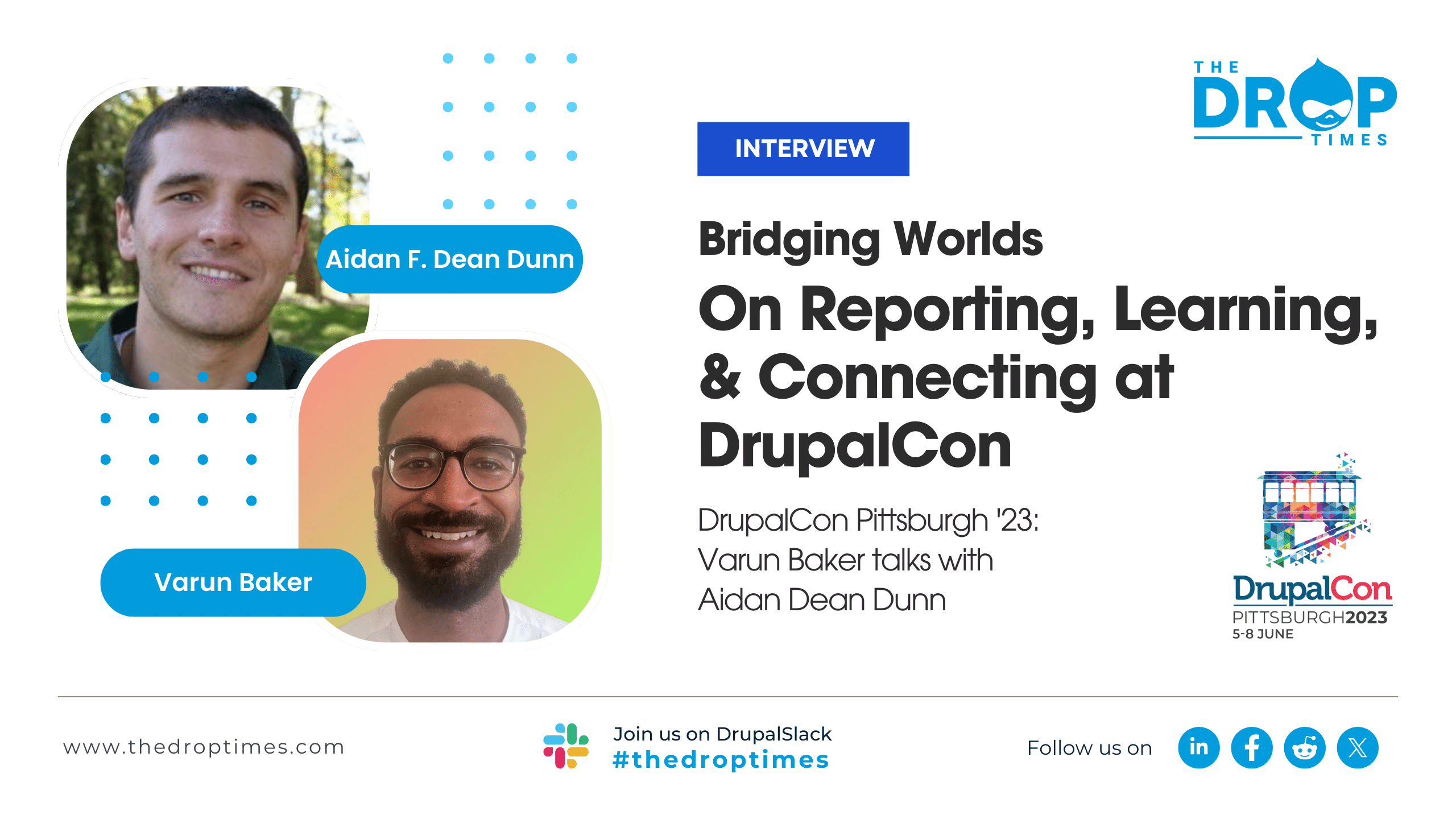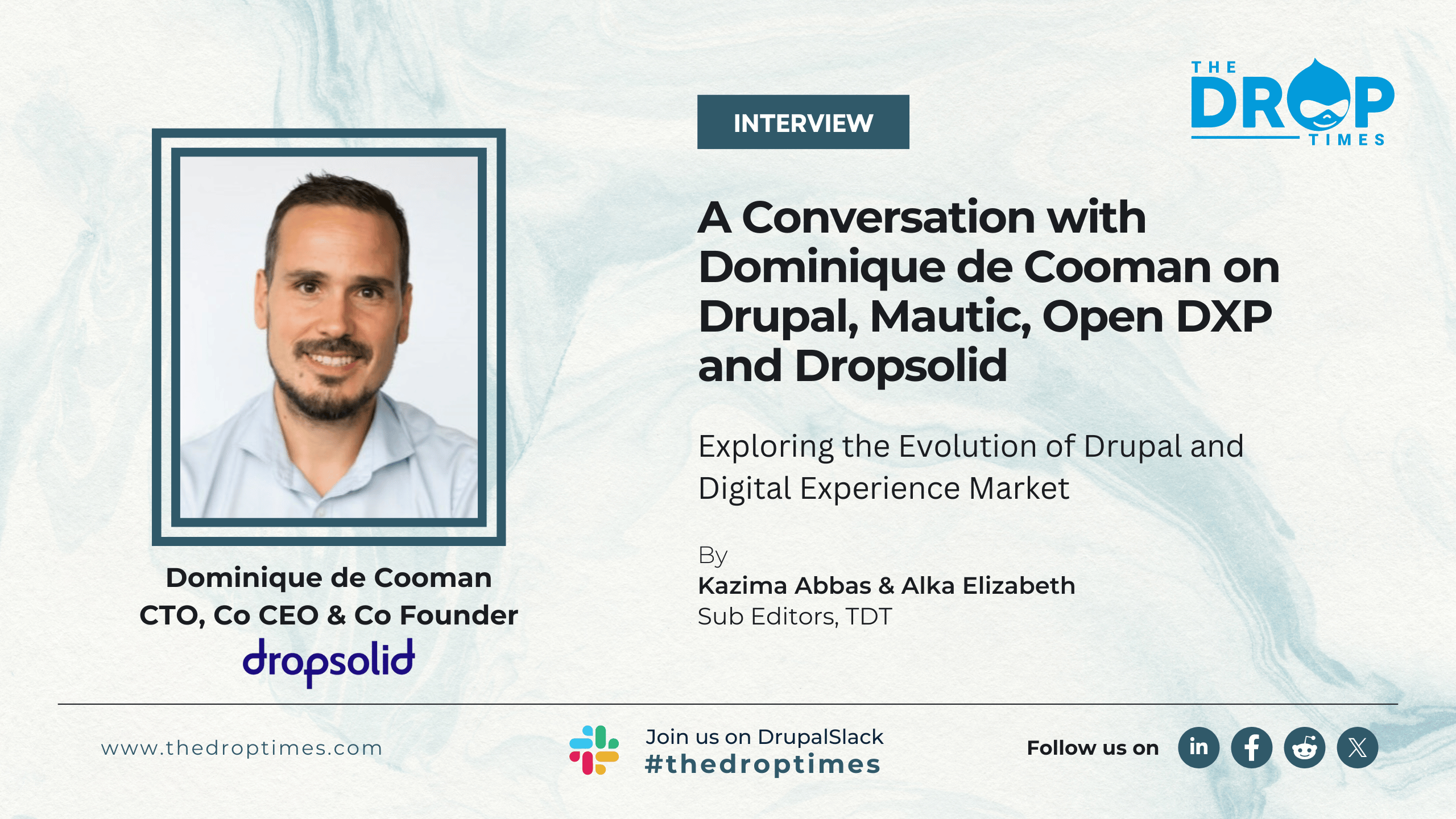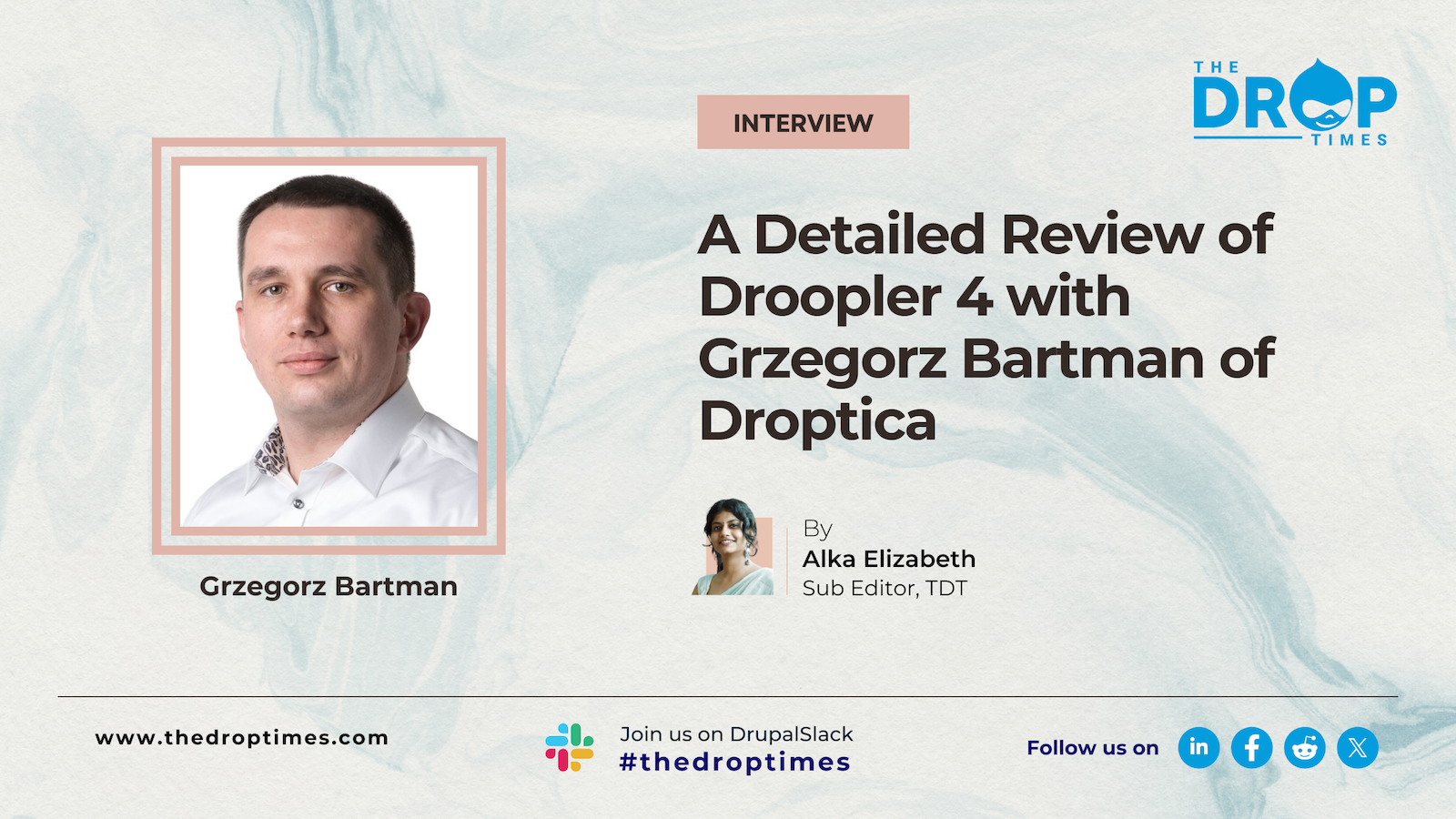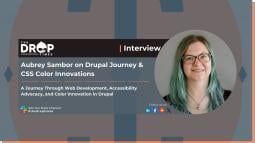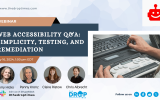Charting Debian's Free Software Journey
Jonathan Carter's introduction to Debian GNU/Linux over two decades ago was nothing short of life-changing. It led to a rewarding personal relationship with the free, libre, open-source software (FLOSS) project and a realization of the potential to make a significant impact. Jonathan's desire to make a difference and drive bigger and better changes motivated him to run for the position of Debian Project Lead (DPL).
The Debian Project is a testament to the power of community-driven development and an important force in the Free Software movement. As the pioneering force in this field, it embodies the strength of collaborative work.
Jonathan Carter known in the Debian community by his nickname 'highvoltage' and serving as the Debian Project Lead (DPL), shared insights into his journey within the Debian ecosystem in an interview conducted by Vimal Joseph, Director of MarTech at Zyxware, for The DropTimes (TDT). They met in person at the recently held Global DebConf (the annual Debian Project's developer conference) in Kochi, Kerala, India, where this conversation began and culminated in an email interview. The Debian Conference 23 (DebConf23) was covered by TDT.
From the role of a DPL to Debian's evolution, aspirations, and guiding principles, Jonathan's experiences offer a captivating glimpse into the vibrant and world of Debian, shaping the future of this influential Free Software project.
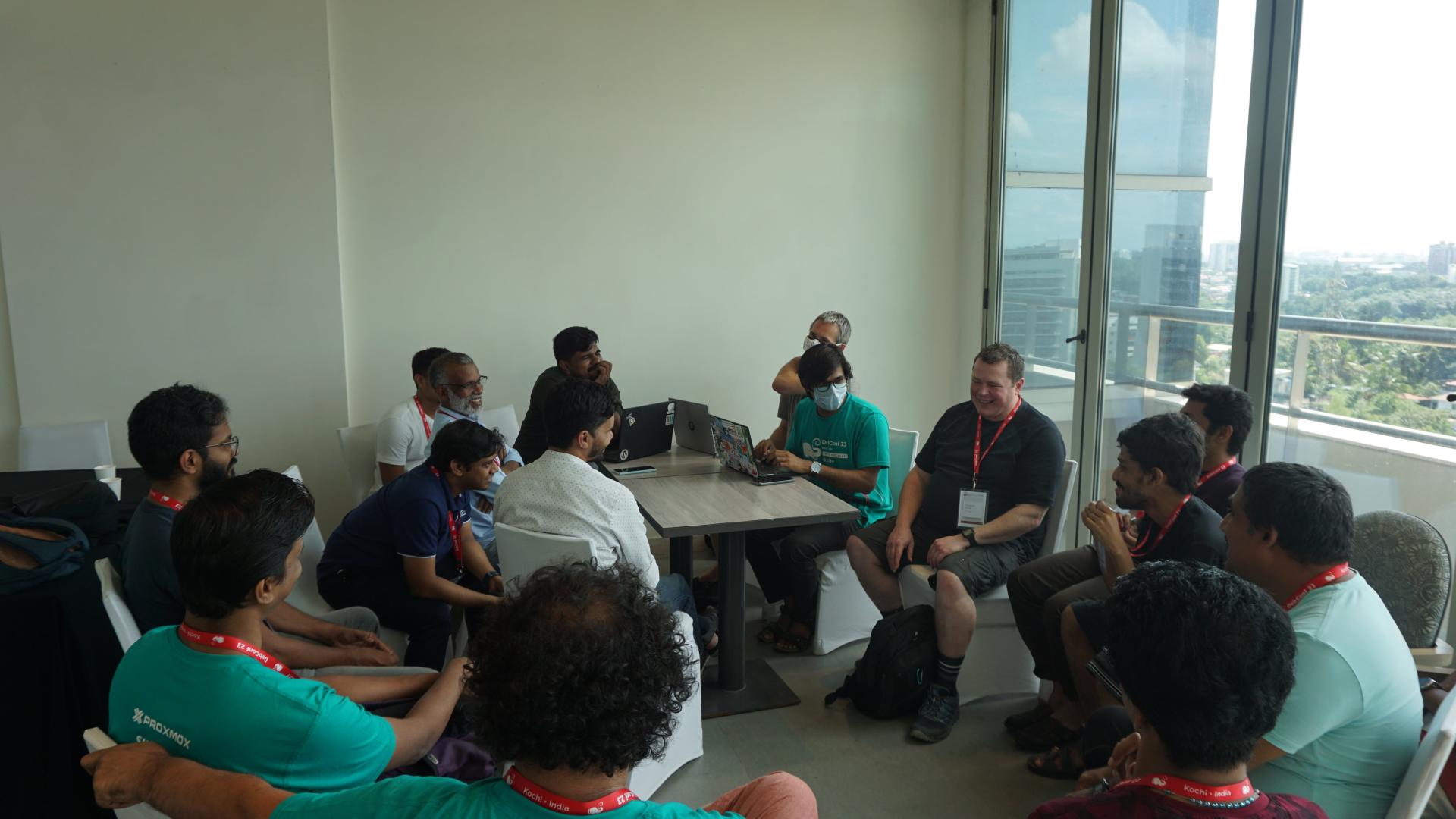
TDT [1]: You are the Debian Project Lead (DPL) for the 4th consecutive year. Leading a sizeable community-led software project like Debian is a challenging task. Our readers would love to hear about your journey with Debian and what led you to become the Debian Project Leader.
Jonathan Carter: I've been interested in computers and operating systems since a young age and was first introduced to Debian in the early 2000s. During the following decade, I started contributing to Debian and learned that it can be a lot of fun! It began with casual contributions, and then it quickly ramped up, as I found it rewarding to make a difference.
I was excited to become a Debian Developer; it was a big achievement. And as time progressed, I became more and more personally invested in the project and wanted to make a bigger difference. In some ways, running for DPL felt like a calling of sorts for me.
TDT [2]: Attracting new contributors to Free Software projects is always challenging. In the platform statement from the candidates for the Debian Project Leader elections, 2020, you wrote about your goals, one of which was to "Make Debian attractive to contributors." Where do you stand on that now?
I still feel the same! Making Debian more fun for existing contributors makes it more attractive to potential newcomers, so I do whatever I can to remove obstacles and blockers for people who try to do work. Sometimes, this entails setting up a sprint, resolving some personal issue, or providing funding for hardware.
I just returned from DebConf in India, and it was really great meeting all the locals who are excited to contribute to Debian and become part of the project. The enthusiasm is contagious, and it is always great to see how effective DebConf is at bringing in new contributors. During the COVID lockdown era, we learned that in-person meetings are essential for growing Debian. It's a lot easier to learn and grow when you have someone close by who can guide you instead of just relying on documentation or an instructional video.
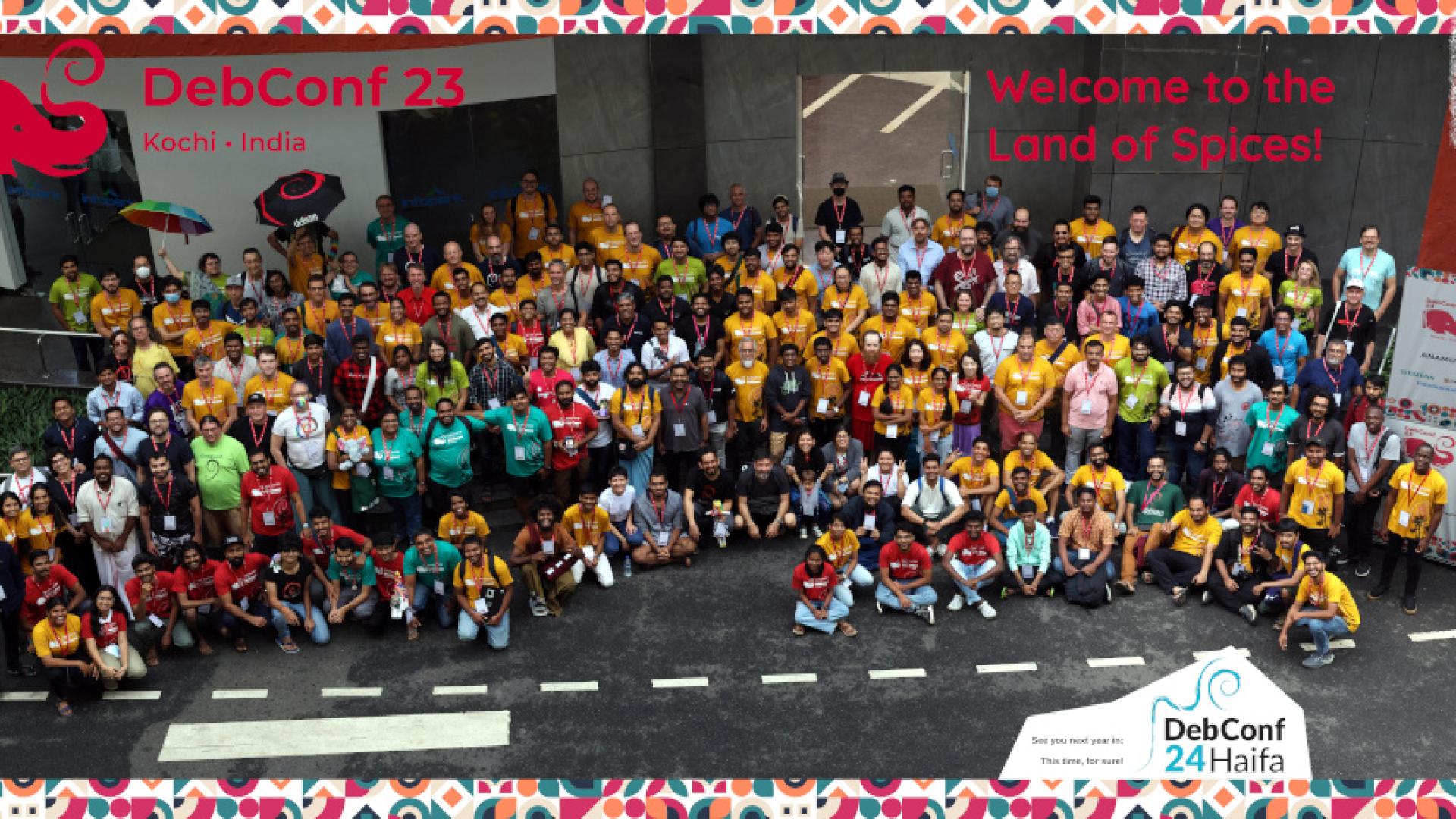
TDT [3]: In your DebConf23 talk on DPL, you touched upon the daily challenges the DPL must handle. You mentioned that, to an outsider, a wedding might seem as simple as feeding 100 people and throwing flowers, but it is indeed much more complex behind the scenes. Please give the readers an idea of the life of a Debian Project Lead.
It's difficult to describe a typical day since there's so much diversity in all the issues you deal with as DPL. During the talk you referenced, someone asked me what the hardest thing I've done as DPL was. At the time, I answered that nothing stood out but that even the difficult things were worthwhile, and I have no regrets. Unfortunately, only two days later, one of our attendees at DebConf passed away. This hurt us all a lot, but making the formal announcement at the conference was the single most difficult thing I've ever had to do as DPL. I often remind people that in Debian, we're affected by just about every problem that exists in computer science because we package just about every type of software that exists. Sometimes, I'm reminded that nearly every problem in society affects us, too, and it takes a lot of work to take care of the human elements within the project.
Other than that, any crisis in Debian that doesn't have someone delegated to deal with it comes to the DPL. So, over time, being DPL gives you a profound understanding of all the problems within Debian and the social dynamics that make it work.
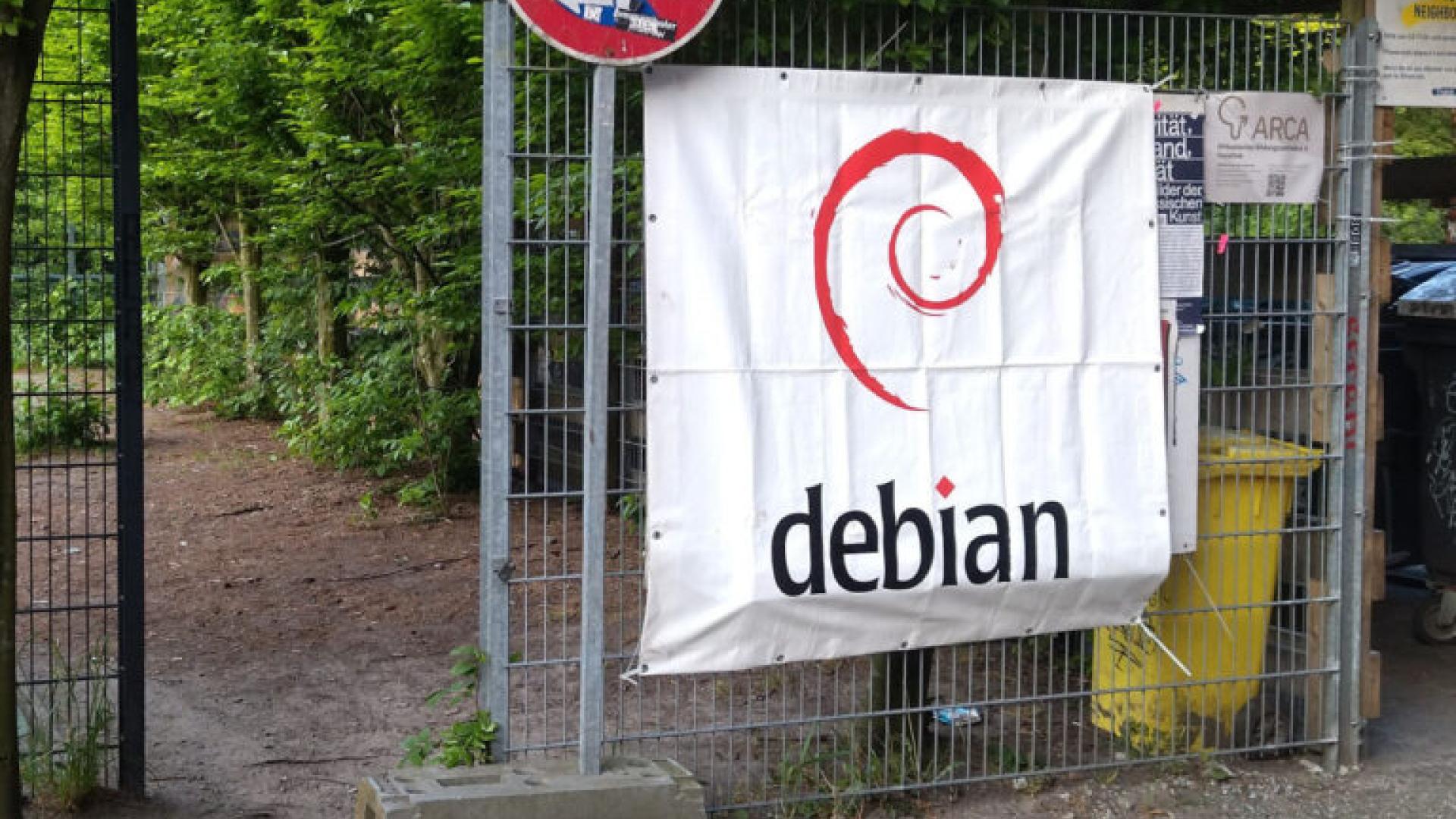
TDT [4]: How has Debian evolved from the era of Ian Murdock to its current stage? What are the current focus points, and what are you looking forward to coming in Debian 13?
Debian has gone through various cycles of change since Ian Murdock founded Debian and served as the first DPL. When he realised it wasn't sustainable for him to be DPL forever, he handed off the role as soon as possible. There were no DPL elections yet, but with each subsequent DPL, the role evolved and improved over time. It became an elected role, and over time, it also became possible for the DPL to delegate responsibilities to other contributors.
If you compare Debian now to the very early days, very little is even recognisable. It's sometimes easy to forget how many things we take for granted as quintessentially Debian, which only came around a bit later. For example, APT was only released for the first time with Debian 2.1 in 1999- six years after Debian was started.
Sometimes, as Debian Developers, we get frustrated when we can't make changes in the project as fast as we'd like. But, overall, the project has proven that it's adaptable and certainly does change with time.
For Debian 13, I'm looking forward to including the RISC-V architecture. I have two devices with these CPUs (a ROMA laptop and a VisionV VF2 board). It would be great to be able to run plain old Debian on these machines natively! The bcacehefs filesystem has also just made its way into the Linux kernel, meaning we'll have it for Debian 13. It contains some of the same features that ZFS has so it will be an exciting addition for many people. Other than that, it's still early days, and we don't know yet about all the features that will make it in. The full freeze for Debian 13 is still more than a year away.
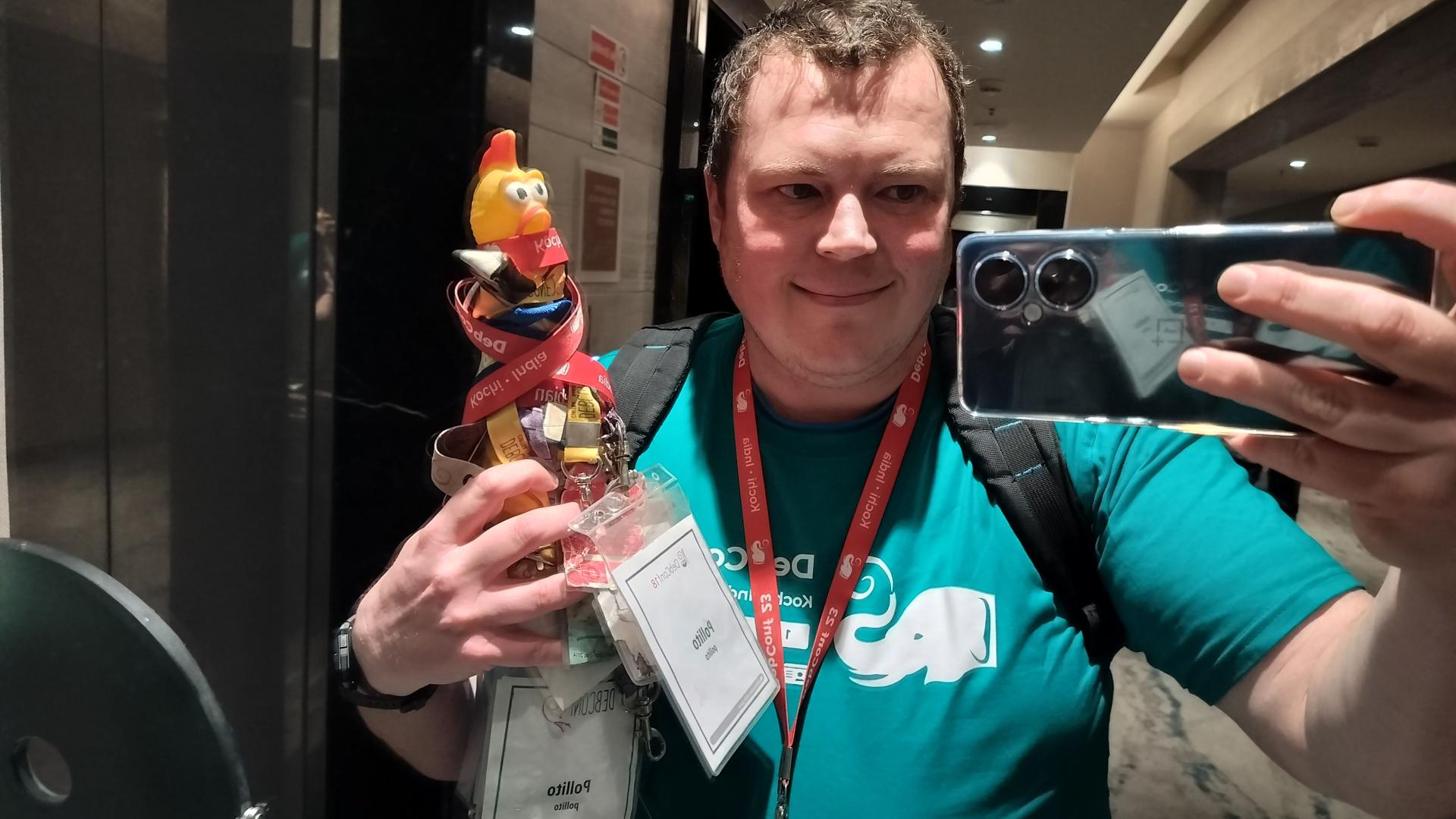
TDT [5]: Apt truly revolutionised package installation, offering a new user experience for installing packages. I fondly remember using Woody when I had a set of 6 CDs; the system would prompt me to insert the appropriate disc to manage package installations. While apt remains the default package management system for Debian, we see other Debian-based distributions gravitating towards different methods. What is your take on this? Will apt continue to be the go-to for managing Debian packages, or do you foresee a shift in the near future?
That's true. Debian had a form of application store long before the concept made it to other systems. And on top of it all, you could also use it offline and install packages from CDs. Now, in 2023, we have so many different package managers that I can't even list them all off the top of my head. Even nearly every programming language has its own package manager these days.
We try to work with all these new package managers from the Debian side instead of against it. Some took more work than others, and it seems like we're finally getting to a point where upstream Python, for example, is satisfied about how we deal with Python packages.
Flatpak is available in Debian and integrated with GNOME and KDE's software centres. The Snap system from Ubuntu is packaged in Debian and is a quick and easy install.
There is a possibility that we might integrate app images in some form into Debian at some point. Some software just isn't suitable for packaging in Debian. For example, we have Firefox ESR (their LTS version) in Debian stable. Still, the latest and greatest Firefox stable releases move too fast for inclusion in stable, so this might be a good candidate for an official Debian app image at some point in the future. I don't believe we'll move away from dpkg/apt any time soon. These tools are also evolving and improving, and we continue to see more support for them. Mozilla recently announced a new daily build of Firefox nightly that they maintain that you can install via their hosted Debian archive. So, we still see the APT ecosystem growing.
TDT [6]: Many people still perceive Debian as a distribution geared towards technical people, while Ubuntu is often seen as more user-friendly. If Ubuntu had never come into existence, where do you think Debian would stand today? Additionally, did Ubuntu's development influence Debian's trajectory in any way?
I think Debian is great for both technical people and for newcomers. There are some rough edges that can be better, but we're working on it, and it shows for the last few releases. Every release is just a bit more polished and refined than the last, and all those positive changes add up over time!
As for Ubuntu, I think it has been very beneficial for Debian overall. Ubuntu has done a tremendous amount of technical work that has made its way back into Debian. In its first few years, it brought many users into the ecosystem, some of whom have even become Debian contributors.
TDT [7]: With the release of Debian 12, we see the inclusion of non-free firmware, a significant shift after a long period of maintaining a clear separation of non-free elements since the times of Sarge and Etch releases. How does this change reflect Debian's stance towards non-free software?
Debian's stance on non-free software has stayed the same. We still dislike all these pieces of non-free firmware, and I recommend that if you can buy and use hardware that doesn't need these blobs, then, by all means, do so and use a completely free Debian!
The crux of our choice to include non-free firmware came down to whether we want Debian to be installable on bare-metal hardware. In the past, most firmware blobs were almost optional. They might have been needed to get your firmware running or better performance from your display adapter or ethernet card, but these days, you can't even get the display, network or sound card on many new machines to work unless you load these blobs which makes installation impossible, or at least nearly impossible without it.
We're also working hard to make the RISC-V platform a fully supported architecture for Debian 13. The RISC-V core is open hardware, so it opens a door to having a high-performing free platform available. It's difficult to predict what the future holds for this platform, but despite that, we want to support it so that running a fully free Debian still remains possible in the future.
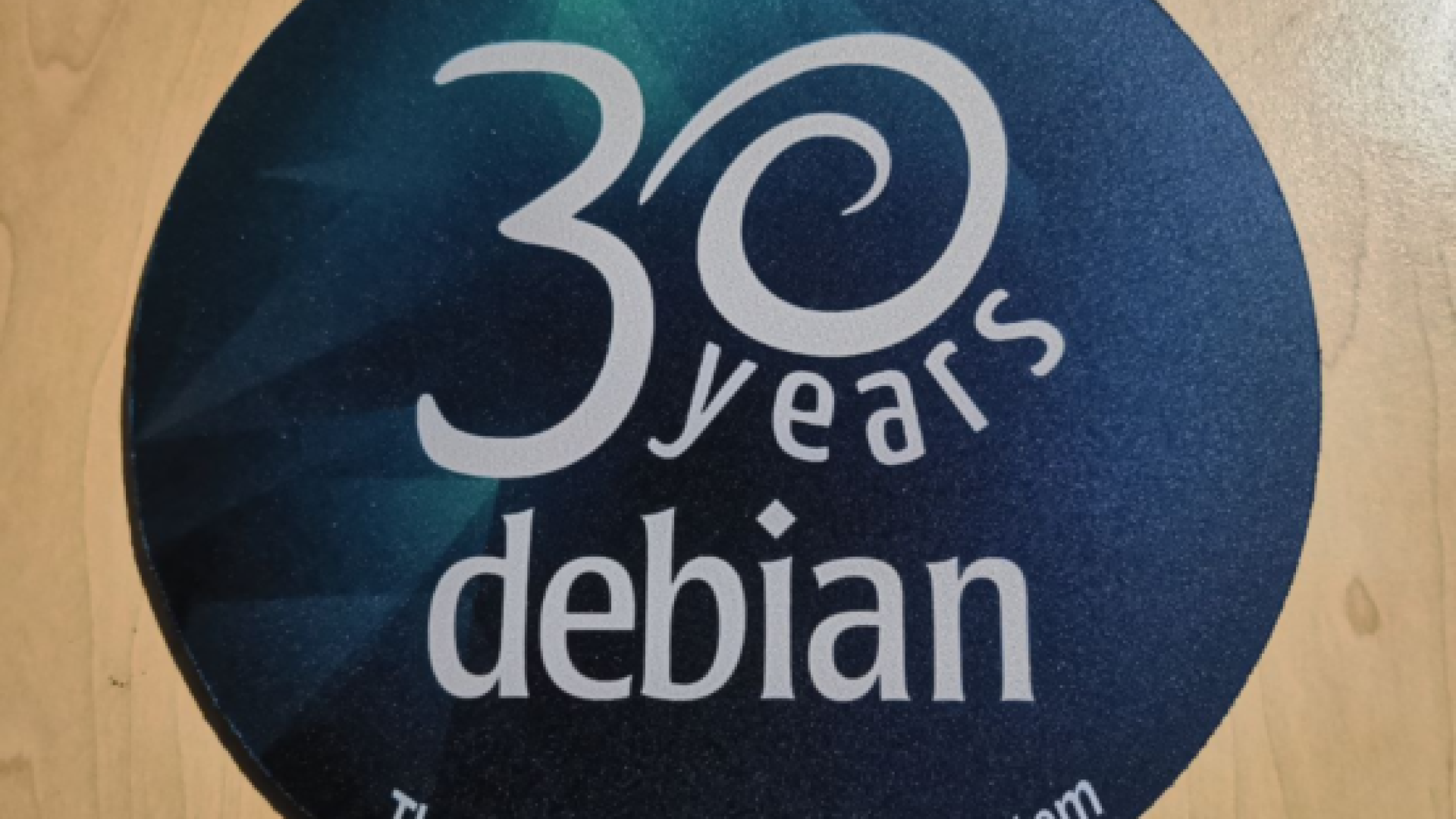
TDT [8]: Debian has a substantial role in championing freedom in the current Free Software ecosystem, especially given that the community wholly owns it. As a DPL, what initiatives are you taking to ensure Debian continues to uphold these principles? How are you fostering collaboration and innovation while sticking to the community's core values?
This is an area where Debian shines on its own well without any need from the DPL! The Debian Free Software Guidelines is well written and has aged well, amazing for a document written in the mid-90s. Our Social Contract is another document where we make some explicit promises of what Debian is to our users, and every person who wants to become a Debian Developer agrees to uphold these principles in Debian. And overwhelmingly, people take it seriously. It's not just some nice words on a website. Every package that enters Debian is thoroughly checked to ensure it complies with our promises.
In terms of collaboration, another area that has worked well is our outreach programmes with Outreachy and Google Summer of Code. We now have a new Outreach Team delegation in Debian that will continue to work on these outreach programs. Still, in addition to those, they are tasked to build an internal outreach program for Debian that we will run in parallel to Outreachy and GSoC.
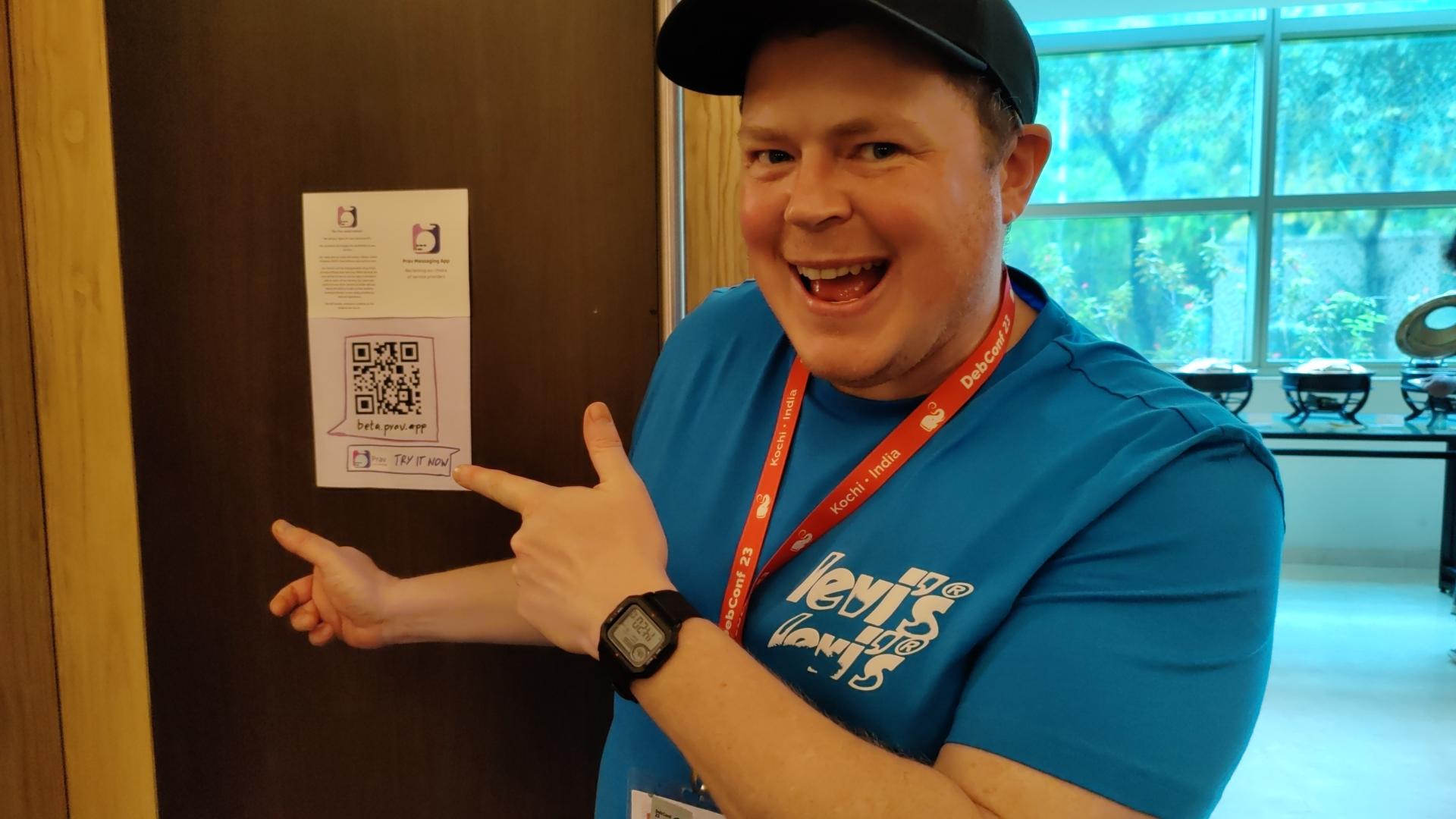
TDT [9]: We know that the name of the Debian release comes from the toy story characters, and Sid, the bad boy, is always there without any change. What happens if the names run out?
Judging by the current list of Toy Story character names on Wikipedia, we have more than 100 years left if we continue to release every two years. Who knows what computers will look like by then, whether people will still install operating systems, and whether Debian will still be around!
So, I'll file that safely under the category of "We'll cross that bridge when we get there"!
The Debian project continues to be a beacon of the Free Software movement, demonstrating that with sufficient dedication and community support, a project can not only withstand the test of time but also actively shape the future it progresses into. As Jonathan aptly puts it regarding future challenges, 'We'll cross that bridge when we get there'. Here's to the next hundred years of Debian, filled with countless innovations and milestones yet to be achieved.
Disclaimer: The information provided about the interviewee has been gathered from publicly available resources. The responsibility for the responses shared in the interview solely rests with the featured individual.
Note: The vision of this web portal is to help promote news and stories around the Drupal community and promote and celebrate the people and organizations in the community. We strive to create and distribute our content based on these content policy. If you see any omission/variation on this please let us know in the comments below and we will try to address the issue as best we can.











